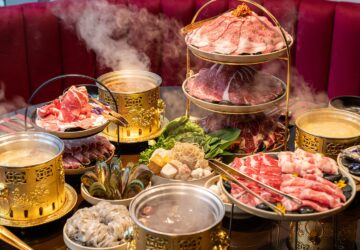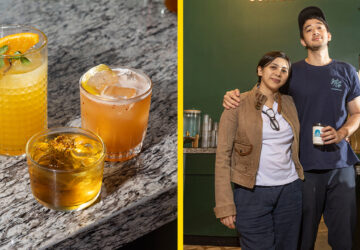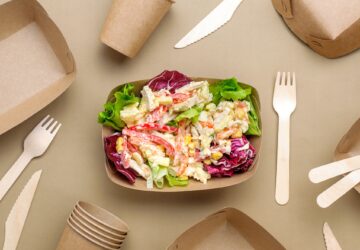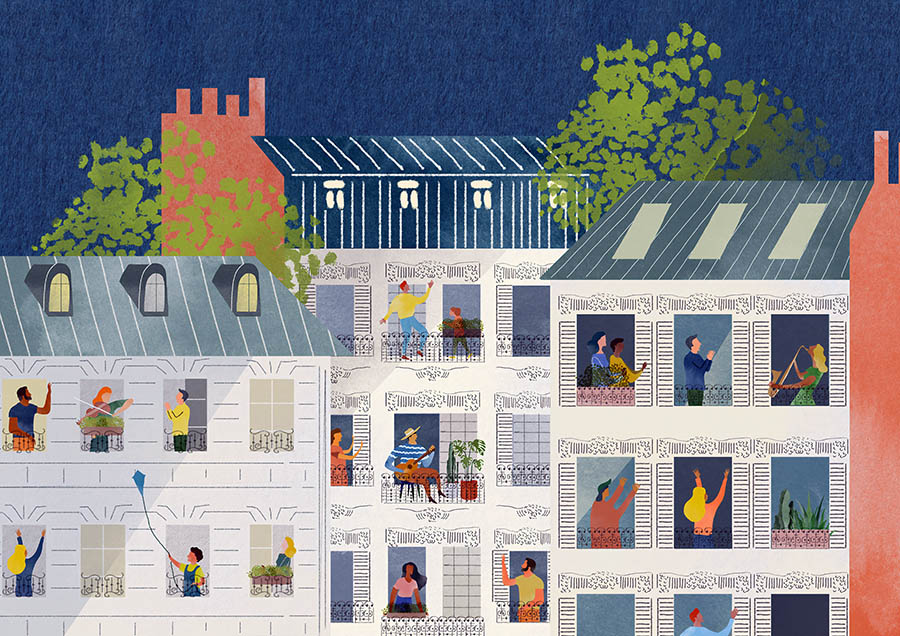As new business models and health protocols roll out for life post-COVID-19, the hospitality industry is also continuously developing precise policies, safety measures, and technologies to ensure the safety of guests and staff.
Enhanced cleanliness policies
Airbnb is one of a number of companies that announced early precautionary measures. In line with the US Centers for Disease Control and Prevention (CDC) standards in home cleaning, the home marketplace’s new cleaning protocol called Enhanced Cleaning Initiative is a list of procedures and guidelines for cleaning every room of the house.
The initiative starts with hosts enrolling in the program. They will then be given access to standard cleaning procedures through Airbnb-provided educational materials as well as a learning and certification program to encourage the host community to continue practicing these routines. A 24-hour waiting period after cleaning should be observed by hosts before their properties appear on the available listing.
Local and international hotels have also strengthened their respective sanitary and cleanliness policies.
Hilton has added new technological guidelines to ensure guest safety. Rooms that are ready for occupancy will have a door seal indicating that it is clean and hasn’t been accessed since. Hilton’s digital key technology through the Hilton Honors app can also be used throughout the entire stay in the hotel—from check-in and room selection to check-out—and not just for unlocking room doors. The hotel is also working on a feature that will open common doors and hotel areas to minimize contact with surfaces.
Hosts will be given access to standard cleaning procedures through Airbnb-provided educational materials as well as a learning and certification program to encourage the host community to continue practicing these routines.
Meanwhile, Hyatt has extended its policies to its staff by requiring training and recertification processes for hospitality hygiene and cleanliness. Staff will also undergo food safety training for different food services in the hotel. The company is also studying the use of high-grade air purifiers and humidifiers to enhance air quality in common areas.
Solaire Resort and Casino also released its new measures in keeping cleanliness and sanitation a priority. Aside from temperature checks in all entrances, the hotel has also placed misting tents and foot baths at main entry points for disinfection procedures before entering the premises. Newly installed ultraviolet (UV) light handrail sanitizers in the establishment’s escalators will also prevent the spread of the virus by automatically disinfecting the handrails as it continuously moves.
Outside areas that surround the establishment like parking areas and driveways will also be sanitized with the use of firetrucks and turbo cannons. Personnel will also spray the tires of vehicles upon entering the parking area.
Following standard procedures from health authorities
All hotels under IHG will adhere to standard health and safety procedures from the CDC, World Health Organization (WHO), and local government units. The group of companies also provides a 24/7 response team that can assist guests staying in their hotels.
For its part, Marriott will use electrostatic sprayers loaded with hospital-grade disinfectants recommended by CDC and WHO for quick sanitation and disinfection of public and private areas. They will also use UV light technology for objects often touched and shared by guests and staff such as room keys and company-owned devices.
The company will also rearrange and remove furniture to allow for social distancing in lobby areas. There will also be signage in public areas to remind guests to observe social distancing. Marriott is also looking at sectioning front desks for added precautionary measure for both guests and staff. As with Hilton, check-in, room access, and special requests like room service can be done using mobile phones.
In Manila, Conrad Manila will take preventive steps like mandatory body temperature scans and necessary health measures depending on guest and staff conditions; in the event that it is necessary, the coastal hotel will also give medications or transfer them to a nearby medical facility.
Premium service from check-in to check-out
At Shangri-La Hotels and Resorts, temperature screening and complete disinfection processes will be observed before transporting anything inside. Once ready to check in, guests will be asked to fill out health and travel declaration forms for transparency and contact tracing. There will also be face masks and other PPE readily available for guest use. Hotel-owned vehicles such as shuttles and limousines will also be disinfected before and after use.
Cleaning of hotel linens will be carried out by professionally trained staff using special soap and detergent. If guests would like to have their laundry done, clothes will be put in individual packaging to avoid potential contamination while health and wellness areas such as pools, hot baths, saunas, and steam rooms will be temporarily closed.
Additional health safety for staff
Hyatt also took time to develop novel strategies to improve its internal system and boost staff morale by introducing daily colleague surveys. This method will measure hotel services like cleanliness and front of house as well as peer interaction and evaluation that will help address problems and opportunities in real time.
Employees of Solaire have also been tested for the coronavirus as a company-driven initiative to assure staff and their families that the company is with them throughout this crisis. City of Dreams Manila meanwhile guaranteed their non-managerial employees 100 percent of their basic pay, excluding allowances, starting May 4. This is a result of the managerial team’s decision to take pay cuts to help those who need it most.
Employing sanitary experts
Other than coming up with cleanliness protocols and providing immediate staff needs, these companies have also partnered with health and sanitary experts to make sure that action plans are guided by health standards and accredited companies.
Airbnb also promised to inform and collaborate with local government units and authorities “to help ensure appropriate precautions are taken, support COVID-19 response efforts, and carry out any other applicable requirements.”
Airbnb’s Enhanced Cleaning initiative was developed with guidance from former US surgeon general Dr. Vivek Murthy, who is the former vice admiral in the Public Health Service Commissioned Corps under Barack Obama. The company also promised to inform and collaborate with local government units and authorities “to help ensure appropriate precautions are taken, support COVID-19 response efforts, and carry out any other applicable requirements.”
Hilton for its part will launch a program called Hilton CleanStay with Lysol protection, in partnership with Reckitt Benckiser, the maker of Lysol and Dettol, to share best practices and studies on how to strengthen cleaning processes. The company will also team up with Mayo Clinic and its infection prevention and control team to enhance current cleaning procedures.
Locally, Okada Manila has already formed a Coronavirus Countermeasure Committee together with health and safety experts to maintain quality and protection during community quarantines. The committee and its security emergency services team are working together to introduce effective solutions such as round-the-clock medical assistance from on-site doctors, nurses, and paramedics on in-house medical facilities for a safer stay in their resort.
Applying for sanitary accreditations
Hyatt is planning to get an accreditation from Global Biorisk Advisory Council (GBAC), a group that “helps organizations and businesses prepare for, respond to, and recover from biological threats, and biohazard situations and real-time crises” to evaluate existing cleanliness policies and apply best practices.
In addition, Hyatt will also train at least one person for every hotel branch to be a hygiene manager responsible for the overall monitoring of the establishment’s cleanliness. This will take effect by September this year as part of Hyatt’s Global Care and Cleanliness Commitment. The company is also in close contact with experts and specialists in different fields like infectious diseases, colleague and F&B safety, space design, and well-being.
COVID-19 relief efforts
Despite the hospitality industry’s current state, hotels still managed to find time to extend resources to those in need.
Resorts World Manila, through its Resorts World Philippines Cultural Heritage Foundation and in partnership with Philippine Amusement and Gaming Corporation (PAGCOR), donated P125 million worth of PPEs to hospitals and food packs to underdeveloped communities in Bulacan, Manila, and Pasay City.
Meanwhile, Okada Manila donated P25 million each to the Lung Center of the Philippines and Philippine Heart Center and P30 million to the Philippine Red Cross. The Okada Foundation also teamed up with PAGCOR to give assistance to overlooked regions in the country like Region 4B, Region 5, and Bangsamoro Autonomous Region in Muslim Mindanao.
Bloomberry Cultural Foundation Inc., the corporate foundation of Solaire, also pledged P60 million worth of PPEs, N95 masks included, and testing kits to the Department of Health for distribution across hospitals and testing centers in the country. The company also distributed food packs to frontliners in the City Health Office of Parañaque. Solaire also encourages the public to support and send messages of hope to frontliners and patients battling the virus through their orange cards posted on their social media accounts.
Same as Resorts World Manila and Okada Manila in partnering with PAGCOR, City of Dreams Manila also donated P120 million worth of relief goods to the vulnerable sector through the Office of the President, P30 million worth of food and health supplies for Parañaque alone, and P1.9 million worth of PPEs to different hospitals in the metro.
Makati Shangri-La and Manila Marriott Hotel both have been supplying essential goods such as packed meals, medical supplies, and toiletries to hospitals and frontliners to help them provide care for their patients. Apart from relief goods, Okada Manila and City of Dreams Manila lent their company buses to the local government unit of Parañaque as a free shuttle service for frontliners.





